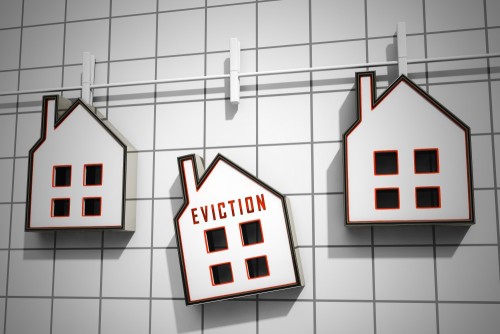- Free Valuation
- Competitive Sales Commission Fees
- Free Mortgage Advice

posted 13th May 2023
The introduction of a new bill aimed at protecting renters from unfair rent increases and "no-fault" evictions has been delayed due to "procedural issues," according to The Mirror newspaper. The Renters' Reform Bill, which aims to enhance the private rented sector and boost tenants' rights, was scheduled to be presented to Parliament this week, but a new date has not been announced.
The bill is set to establish minimum standards for all rental homes, making it easier for renters to keep pets, and prohibiting landlords from imposing blanket bans on families with children or tenants receiving benefits. The government has described it as the most significant overhaul of the private rented sector in three decades, but it is unclear when the measures will take effect. The bill's legislative process could take 12 to 18 months before it becomes law.
The bill comes at a time when renters face a shortage of homes in the private rented sector, leading to higher rents. Renters are already struggling to cope with the rising cost of living.
While the precise contents of the bill are yet to be disclosed, many of the measures have been widely publicized by the government. The bill's main objective is to improve tenants' rights and ensure that their homes are habitable.
The following are expected to be announced:
Arbitrary rent review clauses will be prohibited.
The notice period for rent increases will be doubled.
Renters will have greater powers to contest unjustified rent hikes.
The Decent Homes Standard will be extended to cover the private rented sector, ensuring that all private rented properties are fit for occupation. If homes fail to meet this standard, renters will receive rent refunds.
"No-fault" evictions under Section 21 will be banned, meaning that tenancies will only end if renters wish them to or landlords have a valid reason defined by law.
All renters will be moved to a single system of "periodic tenancies," allowing them to vacate substandard housing without being held liable for rent. This will also make it easier for people to move when their circumstances change.
Councils will be empowered to address rogue landlords, including imposing larger fines for serious offences.
A Private Renters' Ombudsman will be established to resolve disputes between renters and landlords quickly, cheaply, and without resorting to legal action.
Renters will have the right to request to keep a pet in their home, and landlords will be required to consider the request and cannot unreasonably deny it.
Following the creation of a mandatory landlords' register, renters will be able to request information on their landlord and rate them.
According to the government, approximately 4.4 million people in the UK rent their homes in the private sector. However, one in five live in unsuitable properties, over half of which pose health and safety hazards. Additionally, research indicates that over a fifth of private renters who moved between 2019 and 2020 did so involuntarily. By banning "no-fault" evictions, the government hopes that the new bill will correct the imbalance between landlords and tenants and provide renters with greater stability.
Although the bill is good news for renters and provides them with additional safeguards, some landlords are concerned that it may drive them out of the private rented sector. According to research conducted by the National Residential Landlords Association, 76% of landlords believe that the bill threatens their business, with 93% claiming that it will increase the financial risk of being a private sector landlord. According to the latest research, rents have risen by 10.9% over the past year, averaging £1,120. This rise is due to a significant increase in demand, coupled with a scarcity of available rental properties. The combination ofthese factors has made it difficult for renters to find affordable and suitable housing, leading to a rise in homelessness and housing insecurity.
The delay in introducing the Renters' Reform Bill is disappointing news for renters who have been waiting for greater protection and security in the private rented sector. However, it is hoped that the government will resolve the procedural issues and announce a new date for the bill's presentation soon.
The bill's proposed measures, such as the ban on "no-fault" evictions, minimum standards for rental homes, and greater powers for renters to contest rent hikes, are essential steps towards creating a fairer and more equitable private rented sector. It is crucial that the government addresses the concerns of both renters and landlords to create a balanced approach that benefits everyone.
Ultimately, the Renters' Reform Bill is a significant step towards addressing the housing crisis in the UK and providing renters with the security and protection they deserve.






